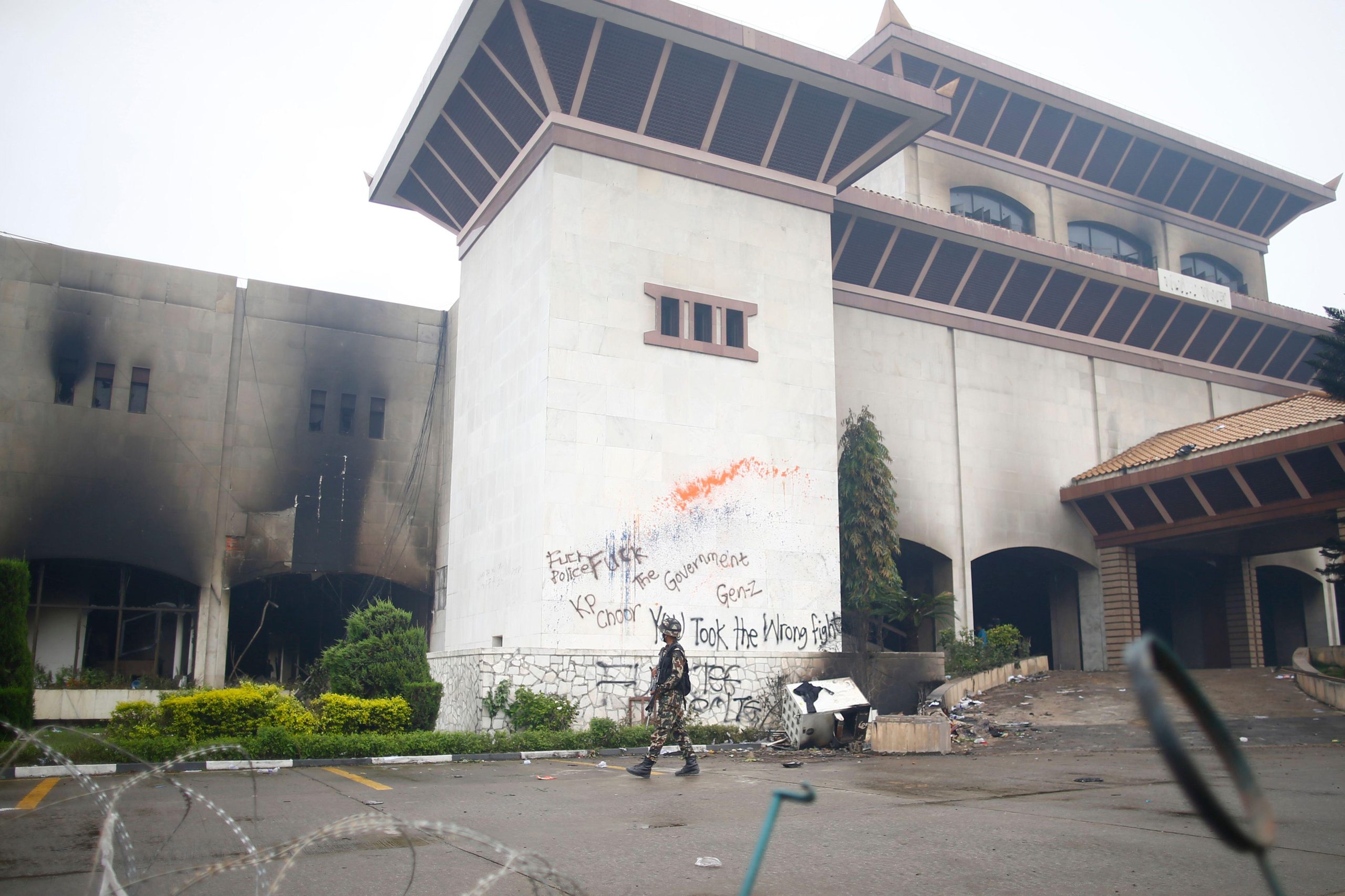It’s been a week of political violence and while many might still be glued to news about the murder of Charlie Kirk (my response here), I want to turn attention to another unfolding crisis – the growing war on digital freedoms. This week that war flared dramatically in Nepal.
The story moved fast. Thousands of people, mostly young, took to the streets at the start of the week to protest the government’s decision to ban 26 social media platforms. Scores of unarmed protesters were killed and government buildings torched. The prime minister and other officials then resigned. The social media bans were lifted. Writing for Index from the country this week, Gary Wornell spoke of his horror and sadness at what unfolded. “The Nepal I had known as my second home for the last 13 years would never be,” he said. His piece is both a good explainer and a deeply emotional witness account.
The government tried to justify the bans as necessary to tackle fake news, hate speech and platform accountability. The youth saw it differently, and called it censorship, plain and simple. We agree, not least because we’ve heard this line before, many times. Across South Asia (and for that matter the world) governments use the pretext of “online safety” to roll back digital rights and, by extension, civil liberties.
In India, we’ve closely tracked how Narendra Modi’s government has tightened control over digital platforms through legislative and regulatory measures, often under the guise of combating fake news or protecting national unity and security. The ruling party has also benefitted from the mob veto, where right-wing groups and influencers have lodged a blizzard of police complaints about errant social media posts. These have resulted in prominent individuals, such as commentator Dr Medusa and journalist (and Index award winner) Mohammed Zubair, being charged with sedition. In Pakistan a bill was passed in January that gives the government sweeping controls on social media. Users can now be sent to prison for spreading disinformation. Sri Lanka’s Online Safety Act allows the government to take down content critical of it to apparently protect national security interests. Bangladesh has the Digital Security Act, which has been criticised for its breadth. I’ll park the UK’s Online Safety Act but we have concerns about that too, as we’ve frequently highlighted.
Not all legislation is cynical or censorious. Several voices from our South Asia network reminded us this week that digital spaces are indeed being used to incite hate and violence. The amplification of hateful content against the Rohingya in Myanmar on Facebook is a tragic example. But here’s a distinction: recognising and responding to harm is not the same as justifying an authoritarian response. Even those most concerned with digital hate in South Asia condemned Nepal’s actions.
The fury has died down in Nepal. Still, as the above pattern shows, it’s unlikely this woeful chapter will be the end of government attempts to shut down digital discourse.






